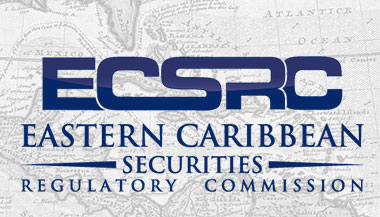BEING AN ALERT INVESTOR
Investment Fraud: What you need to know
An investment scam, which is designed to part you from your money, might involve legitimate products that are sold illegitimately or completely illegitimate investment products. Either way, the people who try to push these scams hope that they are dealing with an unwitting or gullible person. By the time you figure out that you have been the victim of a scam or fraud, these people hope to be long gone—with your money. To protect yourself against these frauds and schemes, it is important to be able to identify their basic characteristics.
Red Flags
To stay on guard and avoid becoming a victim, look for the warning signs of investment fraud:
- A pushy broker or investment salesperson: No reputable broker, investment sales representative or other investment professional should push you to make an immediate decision about an investment, or tell you that you’ve got to “act now.” If someone pressures you to decide on a stock sale or purchase, steer clear. He or she might be selling unregistered securities, working in a boiler room or bucket shop or setting you up for some other kind of fraud. Even if no fraud is taking place, this type of pressuring is inappropriate, and you should report these situations to the firm where the person works if you think the firm itself is legitimate or the securities regulator.
- Account discrepancies: If in reviewing your account statements you notice unauthorized trades, missing funds or other problems, there may be cause for alarm. Such discrepancies could be the result of a genuine error, but they could also indicate churning or fraud.
- Guarantees: Be immediately suspicious of anyone who guarantees that an investment will perform in a certain way. While some investments pose less risk than others, all investments except insured bank products can lose as well as make money. Anyone who guarantees a “no risk” investment is not telling the truth—and could be trying to hook you into a scam.
- Missing documentation: If a broker or investment salesperson tries to sell you a security with no documentation—that is, no prospectus in the case of a stock or mutual fund, and no offering circular in the case of a bond—he or she may be selling unregistered securities. The same is true of stocks without stock symbols. You should be able to see an investment’s issuer, prior performance, terms, any fees you must pay and, in the case of bonds and CDs, the maturation date. Likewise, if you open an investment account but never receive copies of forms and agreements, you should close the account and move your business elsewhere.
- High investment returns: Watch out if someone tells you a particular investment can or will provide higher investment returns than you can get anywhere else. A realistic return depends on the type of investment, but the promise of anything above 10 percent should make you suspicious for two reasons. First, over the past seven decades, the average annualized total return of the Standard & Poor’s 500 Index, a measure that gauges broad stock market performance, has been about 9.6 percent. In some market cycles, small company stocks have done a little better. But historically no other investments have come close to that level with any degree of consistency. And this leads to the second reason that any guarantee of steady returns on stock-based investments should be a red flag: notwithstanding long-term historical averages, stocks have and can fluctuate significantly over short periods.
- Non-traditional products: While scammers may use stocks, bonds, mutual funds, exchange traded funds and cash equivalents as part of their ploy, it’s often easier to trap careless investors with products that offer better tax benefits or promise bigger returns. While many of these alternatives are legitimate investments and may be appropriate for some investors, there is a reason they are not mainstream: they tend to tie up your money for a long time and charge higher-than-average fees. Limited partnerships, sale-leaseback contracts and pre-initial public offerings opportunities (Pre-IPOs) are some examples. Be suspicious as well of investments linked to other people’s life insurance.
Being an Alert Investor
-

Kinds of Scams
Investment scams take many forms—and unfortunately criminals and con artists come up with new ones all the time. While the particulars of an actual investment scam might change, the basic kinds of securities fraud fall into...
-

Red Flags
No reputable broker, investment sales representative or other investment professional should push you to make an immediate decision about an investment, or tell you that you’ve got to “act now.”
-

Who Gets Victimized?
Almost anyone who invests is a potential fraud target, though you can reduce your vulnerability if you know what to guard against. One of the most basic cautions is not to be greedy. If you’re trying to get rich quick, there’s probably
-

Fraud Prevention TipsTip #1: Identify the warning signs
learn more -

Fraud Prevention TipsTip #2: Take immediate action
learn more -

Fraud Prevention TipsTip#3: Report the fraud
learn more
Market News
Registration of New Issuers
The Commission recently completed the registration of two issuers – Bank of St Vincent and the Grenadines and First Citizens Investment Services Ltd. Following the company’s registration with the ECSRC, the shares of the Bank of St Vincent and the Grenadines were listed on the Eastern Caribbean Securities Exchange in June 2016.
-

New Licences 19 September, 2016 learn more
Regulatory Updates
Revised Issuer Reporting Forms Issued
To ensure that public companies continued to provide full, timely and accurate information that meets the needs of the investing public, in 2015, the ECSRC undertook a comprehensive review of the ECSRC Reporting Rules.
-

ECSRC introduces Interim Repurchase Agreement (Repo) Guidelines for the ECSM 19 September, 2016 learn more






